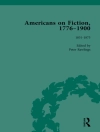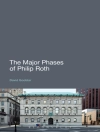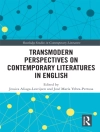This book considers the ways that family relationships (parental, marital, sibling or other) mimic, and stand in for, political ones in the Early Modern period, and vice versa. Bringing together leading international scholars in literary-historical fields to produce scholarship informed by the perspective of contemporary politics, the volume examines the ways in which the family defines itself in transformative moments of potential crisis – birth and death, maturation, marriage – moments when the family is negotiating its position within and through broader cultural frameworks, and when, as a result, family ‘politics’ become most apparent.
Table of Content
1. Introduction; Hannah Crawforth and Sarah Lewis.- PART I: UNION.- 2. Margaret Cavendish, Wife; Julie Crawford.- 3. Reading Overbury’s Wife: Politics and Marriage in 1616; Christina Luckyj.- 4. Representations of the Family in Early Caroline Drama: or, How Do You Solve a Problem Like Henrietta Maria?; Tom Mac Faul.- 5. Animal Families; Helen Smith.- PART II: SUCCESSION.- 6. ‘Good agreement betwixt the wombe and frute’: the Politics of Maternal Power in the Letters of Lady Anne Bacon; Katy Mair.- 7. Allegiance and Alliance: Maternal Genealogies in the Works of Mary Wroth; Naomi Miller.- 8. Mini-Majesty: Dynasty and Succession in the Portraiture of Henry VIII and Edward VI; Naomi Yavneh Klos.- 9. Beyond the Palace: the Transmission of Political Power in the Clifford Circle; Jessica L. Malay.- PART III: REBELLION.- 10. Bare-Forked Animals: King Lear and the Problems of Patriarchalism; Su Fang Ng.- 11. The State, Childhood and Religious Dissent; Lucy Underwood.- 12. Father Figures: Paternal Politics in the Conversion Narratives of Thomas Gage and James Wadsworth; Abigail Shinn.- 13. Family Politics and Age in Early Modern England; Lucy Munro.- Notes.- Bibliography.- Index.-
About the author
Hannah Crawforth is Senior Lecturer in Early Modern Literature at King’s College, London, UK, where she is also a founding member of the London Shakespeare Centre. She is the author of Etymology and the Invention of English in Early Modern Literature (2013), co-author, with Sarah Dustagheer and Jennifer Young, of Shakespeare in London (2015), and co-editor, with Elizabeth Scott-Baumann, of On Shakespeare’s Sonnets: A Poets’ Celebration (2016).
Sarah Lewis is Lecturer in Shakespeare and Early Modern Literature at King’s College London, UK. She has also lectured at University College Dublin, University of Roehampton, Royal Central School of Speech and Drama, and Shakespeare’s Globe. She is currently working on her first monograph, Time and Gender in Shakespeare and Early Modern Drama.












